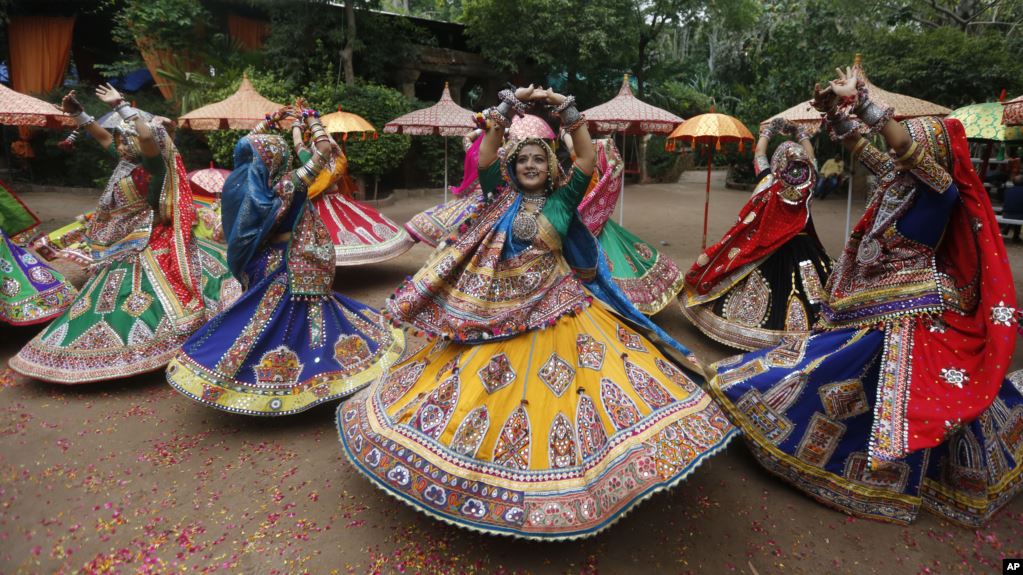پادکست VOA: اصطلاحات انگلیسی – کارهای تکراری
سلام با چهل و یکمین قسمت از مجموعه “Words and Their Stories” (کلمات و داستان آن ها) از سری پادکستهای VOA در خدمت شما هستیم. این مجموعه پادکست به توضیح اصطلاحات رایج زبان انگلیسی، داستان ایجاد شدنشون و نحوه استفاده از آن ها در مکالمه می پردازه. در این قسمت از پادکست VOA: اصطلاحات انگلیسی – کارهای تکراری قراره با کاربرد، معنی و تاریخچه اصطلاح “same old song and dance” (همون آواز و رقص قدیمی) آشنا بشی. در کنارش چندین اصطلاح و کلمه ی جالب و کاربردی دیگه هم یاد میگیری که لیست این کلمه ها به همراه معنی اون ها در پایان مطلب قرار گرفته.
اصطلاح “same old song and dance” (همون آواز و رقص قدیمی) به کارهای تکراری و خسته کننده اشاره داره که به دلایل مختلفی مرتب تکرار میشن.
VOA – Words and Their Stories – 41: Read Some one Like a Book or Write a Book on Something

متن انگلیسی پادکست VOA: اصطلاحات انگلیسی – کارهای تکراری :
Now, the VOA Learning English program Words and Their Stories.
Today, we talk about two activities that many people find really fun and one that makes them happy — singing and dancing!
So, why is the expression “same old song and dance” not at all related to fun or happiness? That is the question we will answer today.
The “same old song and dance” may sound like a great performance, something that you want to see over and over again. But it is not. Here, the “song and dance” is a repeated, tired, even predictable reaction to something. It is something we do or say over and over again for different reasons.
One online reference guide claims that Americans first began using this expression in the late 1800s.
Around that time, vaudeville was a popular form of show business in the United States. In a vaudeville show, performers sang, danced and acted in short, funny skits. Some shows even had animal acts.
Often, a vaudeville show would open with a song and some dancing. But it often was the same song and dance night after night.
And that is where we get the expression “same old song and dance.” Americans use this term in different situations and in each one, there is a slight change in meaning.
Here are some ways we use this expression.
Sometimes “the same old song and dance” can be an overused, weak excuse. It is something we say to others to explain bad behavior. But people have heard it so often that they do not believe it, nor do they care.
Listen for this expression in the following example involving two people in a work-place environment.
Janet: Hey, Matt. Where are you going in such a hurry?Matt: Hi, Janet. I have to drop off forms to a client before the close of business today.Janet: Why are you taking them yourself? I thought you asked James to take care of things like that.Matt: I did. But he had to take his dog to the animal hospital.Janet: Didn’t he give you the same song and dance last week?Matt: No, last week when he missed work because he had a doctor’s appointment … again.Janet: He has a different excuse every week!
Now, sometimes the “same old song and dance” is used to mean someone is trying to trick you. Or, at least, they are only telling you part of the whole story.
For example, at every meeting, a business owner gives her employees the same old song and dance about the company’s great plans for the future. But then … nothing happens.
Sometimes the same old song and dance does not mean an excuse or a trick. Sometimes it is just a very long and complex story. Used this way, the speaker often wants to justify something. They want to convince the listener that their idea is a good one. But in this case, the listener does not really want or need to hear it.
Listen now to how the term “song and dance” is used to mean a very long, complex explanation.
A: How was the theater last night?B: It was wonderful, and the performance was great. But it just took way too long for the show to start.A: Why is that?B: Well, before the show, the theater owner made a very long speech about the importance of theater. He’s raising money for a theater program for at-risk youth.A: Well, that’s not a bad thing, right?B: Not at all. It’s a great program! But we didn’t need to hear his whole song and dance. Most of us had already given money! In fact, he ended his hour-long song and dance by thanking everyone for our generous donations.A: An hour? That’s a really long song and dance.
At other times, “the same old song and dance” can mean a complex system which involves many steps, like a ritual or ceremony.
For example, let’s say your friend works for a terrible boss. Every time your friend wants to start a new project, he is required to explain the same steps over and over again.
Let’s hear how to use this expression.
A: Want to go out for a bite to eat?B: Sorry. I don’t have time today. I have to prepare my project proposal.A: What does that involve?B: I have to write a report listing my goals. I have to prepare a cost analysis presentation on why it is a worthwhile project. Then I have to prove that no one else in the company is doing. THEN I have to get statements from co-workers who think it’s a good idea.A: Oh, no. That’s sounds awful.B: And every time I present an idea to the boss, it’s the same old song and dance. I’m sick of it!
And that’s all the time we have for Words and Their Stories. Have fun using the expression “the same old song and dance” or simply “song and dance.”
لیست واژگان این پادکست
skit (اسکیت) – n. a short, funny story or performance
client (مشتری) – n. a person who pays a professional person or organization for services
justify (توجیه) – v. to provide or be a good reason for (something) : to prove or show (something) to be just, right, or reasonable
generous (بخشنده) – adj. showing kindness and concern for others
ritual (آیین) – n. always done in a particular situation and in the same way each time
boss (رئیس) – n. the person at a job who tells workers what to do
awful (خیلی بد و ناخوشایند) – adj. extremely bad or unpleasant
امیدوارم از پادکست VOA: اصطلاحات انگلیسی – کارهای تکراری لذت برده باشید. برای دسترسی به قسمت های دیگر این پادکست می توانید از صفحه ی پادکست VOA – اصطلاحات انگلیسی آکادمی مجازی آموزش زبان ۲۴talk دیدن کنید.
همچنین برای گوش دادن به پادکست های سطح بندی شده British Council می توانید به صفحه ی پادکست British Council آکادمی مجازی آموزش زبان ۲۴talk یا برای گوش دادن به پادکست های BBC به صفحه ی پادکست ۶ دقیقه انگلیسی (BBC) آکادمی مجازی آموزش زبان ۲۴talk مراجعه کنید.
گوش دادن به پادکست روش خوبی برای تقویت مهارت شنیداری و هم چنین یادگرفتن کلمات در بستر یک موضوع خاصه که این به تقویت مهارت مکالمه انگلیسی نیز کمک زیادی می کنه.
اگه دنبال این هستی که مهارت های مکالمه زبان انگلیسیت رو بیشتر از این تقویت کنی بهت پیشنهاد میکنم در دورهی مکالمه زبان انگلیسی آکادمی مجازی آموزش زبان انگلیسی ۲۴talk شرکت کنی که با یه برنامه منسجم و خلاقانه کمک میکنه در زمان کوتاه بتونی به راحتی و روانی انگلیسی صحبت کنی.







